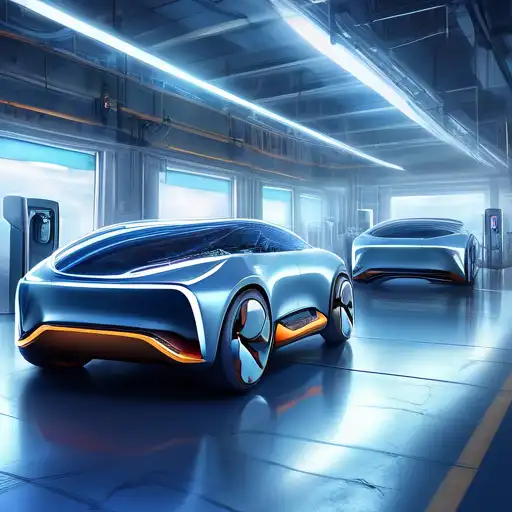Revolutionizing the Road: The Latest in Electric Vehicles and Automotive Tech Innovations
The automotive industry is undergoing a significant transformation, driven by the advent of electric vehicles (EVs) and groundbreaking automotive technologies. This shift not only promises to reduce carbon emissions but also enhances the driving experience with advanced features. In this article, we delve into the latest advancements in electric vehicles and automotive technology, exploring how they're setting the stage for a greener, more efficient future.
The Rise of Electric Vehicles
Electric vehicles have moved from niche to mainstream, thanks to improvements in battery technology, increased range, and more affordable pricing. Major automakers are now committing to electrify their fleets, signaling a strong shift towards sustainable transportation. EVs are not just about reducing emissions; they're about redefining mobility with instant torque, quieter operation, and lower maintenance requirements.
Breakthroughs in Battery Technology
At the heart of the EV revolution is battery technology. Recent advancements have led to batteries that charge faster, last longer, and are more energy-dense. Solid-state batteries, for example, are on the horizon, promising to revolutionize the industry with their superior performance and safety features. These innovations are crucial for addressing range anxiety and making EVs more accessible to the average consumer.
Autonomous Driving and Connectivity
Another area of rapid advancement is autonomous driving technology. With the integration of AI, sensors, and machine learning, vehicles are becoming more capable of navigating without human intervention. Connectivity features, such as vehicle-to-everything (V2X) communication, are enhancing safety and efficiency, paving the way for smart cities where cars communicate with each other and infrastructure to reduce accidents and traffic congestion.
Sustainability and the Future of Automotive Technology
The push towards sustainability is not limited to electrification. Automotive manufacturers are exploring alternative materials, such as recycled plastics and bio-based fabrics, to reduce the environmental impact of vehicle production. Furthermore, renewable energy sources are being integrated into the charging infrastructure, making the entire lifecycle of EVs more sustainable.
Conclusion
The advancements in electric vehicles and automotive technology are not just transforming how we drive; they're reshaping our relationship with transportation. As we move towards a more sustainable and connected future, these innovations promise to deliver cleaner, safer, and more efficient mobility solutions. The road ahead is electric, and the journey has just begun.
For more insights into the future of transportation, check out our articles on green technology and the future of transportation.
